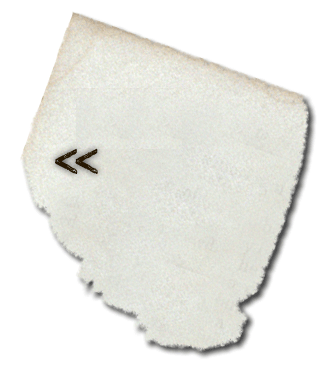Sirens
Anna Vodicka
For years, we played mermaid, my sister and I, trying to approximate the beautiful, fishy women of our stories. We were landlocked, far from the ocean, but we lived at the edge of a quiet lake in northern Wisconsin, and in the summertime we bathed daily in those waters, cold and deep and cornflower blue. Underwater, swimming with minnows and tadpoles, kneeling in the shallows with caddisflies, who live most of their lives in the larval state and carry houses of sticks and stones on their backs, it was easy to believe in the possibility of otherworlds occupied by creatures unknown and humans in changed states: of Heaven and Hell with their winged armies, haloed and horned; of Neverland with its boys lost in flight; of a man in the moon and a sphinx at the gates of Egypt and a watery world where girls like us grew gills. It was easy to imagine that someone, somewhere, figured out how to live like this for good—half-fish, half-human, an underwater bird—and if we practiced enough, if we held our breath, we might learn to do it, might strike a deal with Poseidon and trade our skinny lower limbs for caudal fins, our thin skins for scales.
We learned to dolphin kick. We swam naked. We dove in search of treasure—faded toys, Schlitz cans and firework casings we collected on land—or dove simply to hear the lake make its old attic sounds, creaks and pops, the stretch and yawn of something restless in the shadows. We swam to the other side, as far from home as courage would take us. We made messy impressions of water ballet, sang warbling underwater duets, and pantomimed afternoon tea, sinking our bodies to the bottom until our hearts beat in our ears and our lungs pressed against the cages of our ribs, and we scissor-kicked for the surface where we bobbed, swallowing air in grateful, thirsty gulps.
Eventually, we had to give it up. The sun was setting behind the pines and Mother called from the open window for us to come inside and set the table. Or the weather shifted, storm clouds overhead made the lake dark and menacing, and rain and lightning shot fear into us. Or we’d lingered too long, until our skin tightened to gooseflesh and our lips turned blue, teeth chattered, fingertips paled and puckered, aged, suddenly, like some fairy tale curse, and we could feel it, a clammy hand reaching up from the depths for an ankle, a siren song on the wind, and we thrashed our feet and suddenly longed for the warmth of the house and our shoulders wrapped in terrycloth. How long, anyway, can a girl go on believing she’s a mermaid? At some point, the notion sunk in: our bodies were our fate. There would be no kingdom beyond the blue for us. We could no longer live underwater, and so we turned to face the shore.




